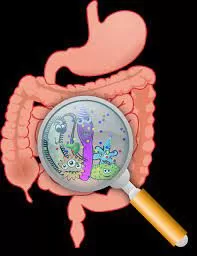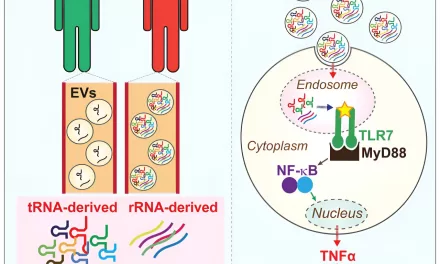In a groundbreaking study published on April 2 in the journal Cell Host & Microbe, researchers have unveiled a remarkable discovery regarding infant gut microbiomes: they oscillate with a circadian rhythm, even when cultivated outside of the body. This rhythm, detectable as early as 2 weeks after birth, becomes more pronounced with age, indicating a significant developmental milestone in the microbial ecosystem of infants.
Led by senior author Dirk Haller, a microbiome expert from the Technical University of Munich, the study challenges previous assumptions about the impact of diet on infant microbiome development. The researchers conducted a randomized controlled trial involving 210 infants to compare microbiome development among those exclusively breastfed and those fed different types of formula.
Contrary to expectations, diet had only a marginal impact on microbiome composition. Regardless of feeding method, all infants exhibited a gradual increase in gut microbe diversity over time, with no observable differences between groups at 24 months. However, a notable difference emerged in the gut metabolite profile between breastfed and formula-fed infants, suggesting a distinct metabolic influence of breast milk.
One significant finding of the study was the observation of rhythmic 24-hour fluctuations in the abundance of different microbiome species. Even when grown in continuous culture in the lab, infant microbes maintained these circadian rhythms independently of external cues, shedding light on their intrinsic adaptation to a day and night cycle.
“This is fairly surprising because it suggests that the bacteria have some intrinsic mechanism that provides some sort of adaptation to a day and night cycle, which could potentially give them an advantage in colonizing the human intestine,” explains Haller.
Moving forward, the researchers plan to delve deeper into microbiome circadian rhythms, aiming to identify the mechanisms underlying bacterial circadian behavior. They hope to explore whether individual bacterial species maintain rhythms when grown in isolation and to pinpoint the genes responsible for regulating these rhythms.
The study marks a significant step forward in understanding the intricate dynamics of infant gut microbiomes and underscores the importance of continued research in this field. As scientists unravel the mysteries of microbial circadian rhythms, new insights may emerge that could pave the way for innovative approaches to promoting infant health and development.












